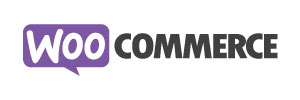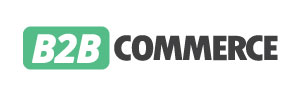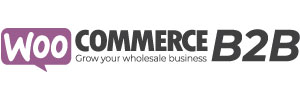We’re seeing the Sage 200 B2B world constantly changing and in many methods ending up being more like the WooCommerce world. The B2B client is now wanting a lot more of a WooCommerce-like buying experience, however what are a few of the primary differences in between Sage 200 B2B and WooCommerce?
Increasingly more B2B platforms are providing an experience comparable to that of an Amazon-like shopping experience, providing their customers easy-to-use functions such as search functions and the capability to use discount rate codes at checkout. However, the Sage 200 B2B world has even more extensive requirements than that of the WooCommerce world, such as the need for the capability to handle intricate pricing, multi-warehouse stock allotment, and advanced product configuration orders. All of these requirements should be readily available in real time, and from one single source of fact, the company’s ERP.
So, if you’re considering a digital Sage 200 B2B platform, it is essential to choose a WooCommerce platform service provider who concentrates on the intricacies of Sage 200 B2B, to help to build your platform duplicated from your ERP. Many WooCommerce platform providers will claim that they can deliver you a Sage 200 B2B platform by adjusting the plan of a WooCommerce platform, making a few customizations, and will inform you that Sage 200 B2B and WooCommerce are similar. However most of the time, this will trigger issues later on down the road, due to the nature of Sage 200 B2B.
Storehub.io concentrates on constructing both Sage 200 B2B and WooCommerce platforms. Our eCommerce experts comprehend the differences between the two and recognize that the platforms need different functionalities and features. We have over 1,000,000 distinct users and over 1,000,000,000 unique transactions, with a terrific performance history of building Sage 200 B2B and WooCommerce platforms. Take a look for yourself and check out a few of our client success stories.
Let’s have a look at a few of the crucial differences in between Sage 200 B2B and WooCommerce :
What is The Difference With Sage 200 B2B Customers vs WooCommerce Customers?
B2B customers are usually more complex than WooCommerce customers and have various requirements. Sage 200 B2B customers need to be able to be designated to several accounts and typically need items to be delivered to and from various storage facilities. WooCommerce transactions typically involve the customers acquiring from the merchant, which’s the end of the deal. This is a far easier process than it would be for a Sage 200 B2B customer who may require to look into the product, handle shipments, consider multi-ship-to and multi-bill-to mixes. Therefore, a Sage 200 B2B eCommerce platform requires to be able to manage the additional requirements and obstacles of Sage 200 B2B customers.
What Is the Difference Between Payments For Sage 200 B2B Customers And WooCommerce?
WooCommerce payments are typically made by means of charge card, however Sage 200 B2B clients require a far greater range of payment alternatives. Sage 200 B2B buyers require to have the ability to examine their billing history and AR record, in addition to having the ability to select from multiple integrated payment choices. Sage 200 B2B consumers typically have customer-specific prices or volume-based discount rates, which a robust Sage 200 B2B eCommerce platform is equipped to deal with. If prices is altered or updated due to bill-to or ship-to details that has actually been supplied, then the consumer needs to receive this details quickly and precisely. A Sage 200 B2B eCommerce platform must have the ability to deal with numerous unique rates constructs in a manner that is not needed for WooCommerce, so it is necessary to pick the best Sage 200 B2B eCommerce platform company that can build you a platform efficient in handling this.
What Is the Difference With Products on Sage 200 B2B Customers And WooCommerce?
Sage 200 B2B products tend to be even more elaborate, with more product variants and modifications. Products can range anywhere from simple consumable products to extremely technical and configurable products. Not all products are sold to an end-consumer. Often the item that is being sold is an item that is needed to make another item or system, which suggests that there are typically several sizes and dimensions to choose from. The consumer requires to be able to gain access to information about bundles, measurements, extra devices, specification information, guarantee information, and so much more to ensure that they are totally notified about the purchase they’re wishing to make.
What The Different With Search Between The Two?
A search function is essential to any Sage 200 B2B or WooCommerce website. Sage 200 B2B customers require a search function that permits them to search, filter, and sort search engine result to help them to find their desired product. The search function makes the customer buying experience far easier and simpler to utilize, rather than consumers needing to explore pages of unassociated products. Although both Sage 200 B2B and WooCommerce frequently utilize a search function, advanced search abilities are usually required for Sage 200 B2B, due to the variety of search results page a client could be provided with. Due to the number of variations of a few of the products of Sage 200 B2B, clients could be provided with a great deal of search engine result, so having the ability to filter if they have ordered that item in the past, or searching for specific sizes and measurements, for example, could be exceptionally useful for a Sage 200 B2B customer. Other features such as effective ElasticSearch, auto-complete and spelling suggestions can be truly handy when customers are searching for a specific product, along with using synonyms to prevent clients from being presented with a ‘no outcomes discovered’ page.
What is The Difference Between Check-out?
WooCommerce checkout procedures tend to be relatively straightforward- You hit the checkout button, enter your shipping address, enter your card details and you’re done! Sage 200 B2B check-outs tend to have far more to think about than this, with multiple-order approvals, billing and shipping intricacies, and credit limits all needing to be thought about at the checkout stage. Sage 200 B2B checkouts require to be even more sophisticated to enable the extra requirements of a Sage 200 B2B eCommerce platform, whilst guaranteeing that the checkout process doesn’t become too difficult or frustrating for the consumer. Customer-specific prices and discount rates require to all remain in order at the checkout phase to guarantee the customer is existing with appropriate rates, and often custom-made orders might require to be quoted. Consumers need to be able to provide as lots of information as possible, making it easier for a sales or client service representative to respond rapidly, through the Sage 200 B2B eCommerce platform so that the client can go back to the platform to retrieve the quote and merely add it to the basket if they would like. The checkout needs to enable several shipping choices and locations, and also offer numerous payment choices, which is various from the usual WooCommerce checkout.
Although the Sage 200 B2B world is ending up being more WooCommerce-like, there are still lots of differences between the requirements for an effective B2C eCommerce platform and a Sage 200 B2B platform. The complexities of a Sage 200 B2B eCommerce platform are far greater and there is a lot to be thought about when going digital, so make sure to pick an eCommerce professional that comprehends the distinctions in between Sage 200 B2B and WooCommerce. With specialists in both Sage 200 B2B and WooCommerce, Storehub.io can confidently assist to provide you an extraordinary WooCommerce platform when you’re ready to go digital! Storehub.io has years of experience with Sage-run companies and has actually successfully created many sites, so you’re in great hands for taking your Sage-run service online to create a Client Website or Webstore with us!
Contact the Storehub.io sales team to book a consultation.












